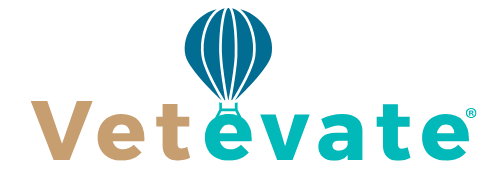For veterinarians, finding the “best” job isn’t a one-size-fits-all process. What qualifies as the best position depends greatly on individual goals, values, interests, and lifestyle needs. For some professionals, an ideal role might mean a high-volume practice with access to the latest equipment and a generous salary. For others, it might be a low-stress position in a shelter or nonprofit, where the focus is on community service and animal welfare. Some are drawn to academic or research institutions, while others want the independence of mobile practice or ownership. That’s why the first step in finding the best veterinarian job is defining what “best” means to you.
Understanding your preferences helps narrow down your search to roles that align with your vision for a satisfying veterinary career. Consider what matters most—species focus, schedule flexibility, mentorship availability, opportunity for advancement, practice philosophy, or even geographical location. When you clarify what kind of work brings you joy and energy, you’re more likely to land a job that supports both professional growth and personal well-being. Instead of falling into roles that don’t align with your values or skills, you can make intentional choices that lead to long-term fulfillment.
In today’s market, veterinarians have more options than ever. The demand for qualified professionals continues to rise, and with that comes greater flexibility and leverage in the job search process. But opportunity alone isn’t enough. To find the right fit, you need a strategic approach—and that’s where veterinary job boards come in.
The Advantages of Using Veterinary Job Boards
Veterinary job boards are specialized platforms designed specifically for the animal health industry. Unlike general job search sites, these boards offer targeted listings and filters that reflect the nuances of veterinary work. Whether you’re looking for a role in small animal practice, equine care, wildlife conservation, or a teaching hospital, veterinary job boards make it easier to zero in on positions that are relevant to your training, preferences, and career goals.
One of the most significant advantages of veterinary job boards is the ability to conduct a refined search. These platforms allow users to sort listings by practice type, species, location, experience level, and more. This means you won’t waste time scrolling through irrelevant jobs that don’t match your skills or interests. You can find exactly what you’re looking for, whether that’s a full-time associate role in a bustling urban clinic or a remote opportunity with a telehealth provider that serves rural communities. The precision and relevance of the listings make these boards valuable for job seekers who want to take control of their careers.
Employers who post on veterinary-specific job boards are typically more intentional and informed about their recruiting. They know they’re speaking to a specialized audience and tailor their listings accordingly. That translates to better job descriptions, more accurate expectations, and a stronger match between employer and candidate. This can also lead to a smoother hiring process, as both sides are operating within a shared understanding of the industry’s demands and values. When you apply through a veterinary job board, you’re more likely to engage with employers who understand your qualifications and are genuinely invested in animal care.
In addition, veterinary job boards often include features that support career development beyond the job hunt. Many platforms offer access to continuing education resources, salary guides, resume tips, and industry news. These tools can enhance your understanding of the market and prepare you to present yourself as a well-rounded and competitive candidate. Whether you’re entering the profession, looking to pivot into a new specialty, or aiming for a leadership role, the insights provided by job boards can help you make smarter decisions about your next step.
Creating a Strategic and Focused Search
To truly benefit from veterinary job boards, you need a thoughtful and focused approach. Start by building a strong candidate profile on the platforms you choose. Make sure your information is complete and up-to-date, including your education, certifications, clinical experience, and professional interests. Use language that reflects your personality and priorities, whether you’re passionate about exotic species, committed to Fear Free practices, or experienced in surgical procedures. A well-crafted profile increases your visibility and can lead to direct outreach from employers or recruiters who see you as a potential fit.
Once your profile is set, use job alerts to stay updated on new listings that meet your criteria. This feature allows you to be one of the first to apply when ideal jobs become available. Timing matters in competitive markets, and being proactive can make a difference. Regularly review and adjust your filters to ensure your search evolves with your goals. For example, if you initially focus on general practice but decide to explore emergency medicine or integrative care, update your preferences accordingly.
Don’t just look at job titles—read listings carefully. Pay attention to how the employer describes their practice culture, team dynamics, and expectations. Does the listing emphasize mentorship? Does it highlight work-life balance? Is there an investment in technology or continuing education? These details can offer critical insight into what it might feel like to work there. Use this information to tailor your application and, more importantly, to determine whether the role fits your definition of a “best” job.
It’s also helpful to think ahead during the search process. Where do you want to be in five or ten years? Use the job board not just to find your next role, but to find one that sets you up for future growth. That might mean seeking out practices with career advancement tracks, research opportunities, or exposure to a wide range of case types. A forward-thinking approach helps you avoid short-term fixes and focus on long-term career satisfaction.
Presenting Yourself as a Strong Candidate
Once you’ve identified roles that interest you, it’s time to position yourself as a standout applicant. Veterinary job boards simplify the application process, but it’s up to you to make your submission count. Start by tailoring your resume to each job you apply for. Highlight experiences and skills that are most relevant to the position. If you’re applying for a job in a feline-exclusive clinic, for instance, emphasize your experience with feline patients, handling techniques, and any relevant certifications. Make your resume easy to read and results-oriented, showing not just what you did but how it made a difference.
Your cover letter should go beyond a generic summary of your resume. It’s your chance to show that you understand the practice’s mission and culture—and how you would be a great fit. Use this space to express your enthusiasm, clarify your goals, and provide examples that reflect your values. A well-written, sincere cover letter can help your application rise to the top of the stack, especially when competition is high.
Follow up after applying if possible, especially if the listing includes contact information for a hiring manager. A polite message expressing your interest and thanking them for the opportunity can go a long way. It demonstrates initiative, professionalism, and a genuine desire to be part of their team. This kind of follow-up is easier to manage when using job boards, as you can track your applications, deadlines, and contacts in one place.
Finally, use the platform’s networking or messaging tools if available. Introduce yourself to recruiters or employers with a short, friendly message that reinforces your qualifications and interest. Keep it brief but thoughtful. Sometimes a small step like this is enough to spark a conversation that leads to an interview—and eventually to the job that perfectly matches your vision of veterinary success.
The Best Veterinarian Jobs for You
Finding the best veterinarian job isn’t just about luck—it’s about strategy, self-awareness, and using the right tools. Veterinary job boards play a central role in this process, helping you narrow your search, connect with quality employers, and access the resources you need to succeed.
By defining what “best” means to you and approaching the search with intention, you can uncover opportunities that align with your goals and values. Whether you’re just starting your career or looking to take it to the next level, veterinary job boards are one of the most efficient and effective ways to find the role that fits you best—professionally, personally, and passionately.




